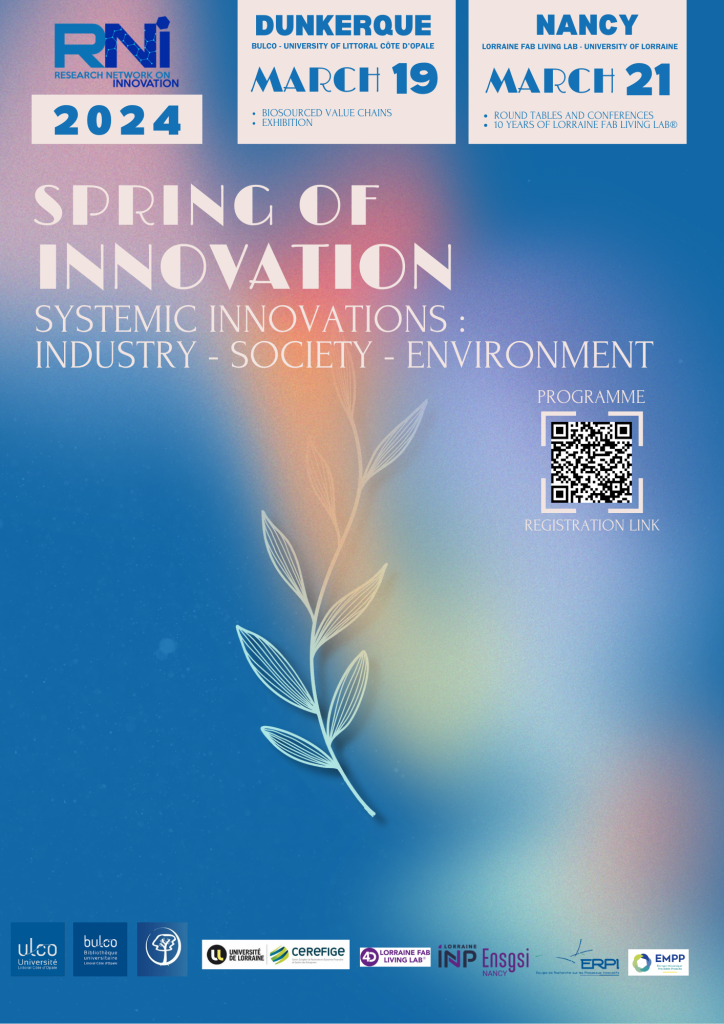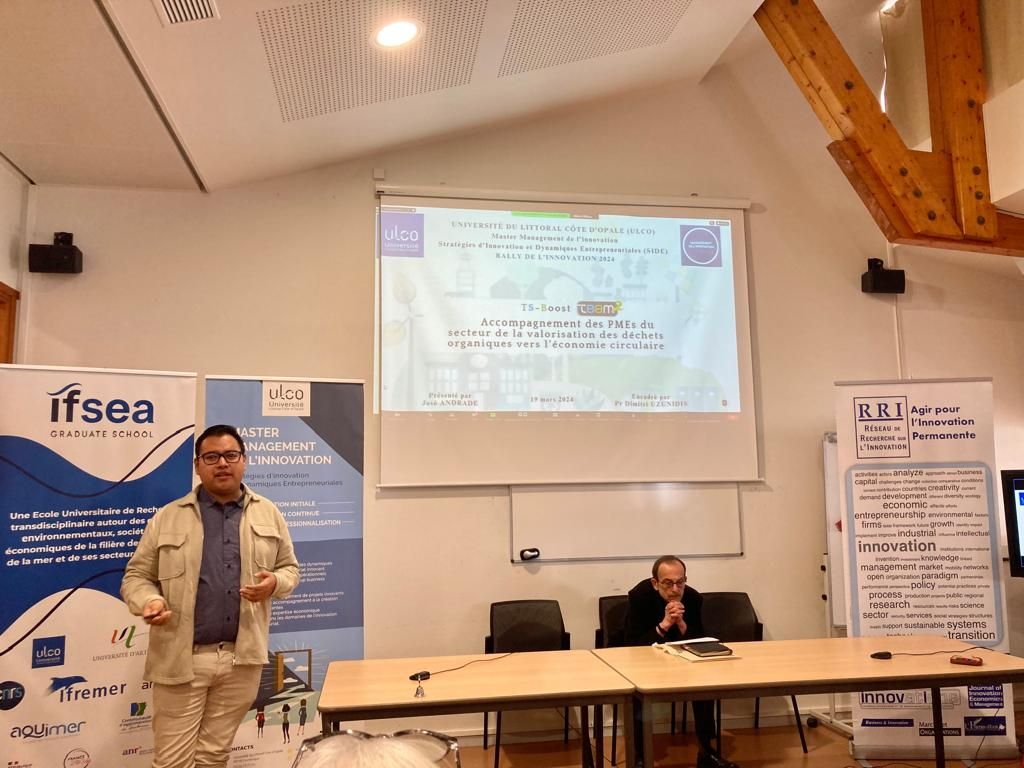Spring of Innovation 2024 : « Systemic innovations: industry, society, environment »

Description
The systems approach may be a key response to rethinking current models for organizing human activity in a context of climate change (Uzunidis et al., 2021). It refers to collaborative and mutualized management of the development of a territory, a sector, an industry, a project, a resource, etc., involving various stakeholders in an integrated and cross-disciplinary approach. Systemic innovations involve innovative solutions that emerge when these different entities (individuals, companies, society, etc.) interact in a synergic way to create larger systems.
There are many models of systemic innovation, starting with the well-known: industrial symbioses stemming from industrial ecology practices (Kasmi, 2021) and, more broadly, the circular economy (Vence et al., 2022), eco-neighborhoods, short food supply chains, innovation ecosystems (Baldwin et al., 2024; Laperche et al., 2019), and public-private-population partnerships (PPPs) (Dupont et al., 2015). These examples share the common feature of operating with the aim of guaranteeing a balance between the development of human activity and the preservation of the natural ecosystem. The systemic approach is becoming increasingly popular and is spreading to other fields such as, other pillars of the circular economy like the economy of functionality (Merlin, 2024), the social and solidarity economy, the bioeconomy (Debref & Vivien, 2021; Debref et al., 2022), agriculture (Matt, 2023a, Matt, 2023b), distributed urban manufacturing, FabCity projects (Diez & Posada, 2013; Moritz et al., 2016), collaborative innovation spaces (fablabs, living labs, third places, among others) (Kasmi et al., 2022; Morel et al., 2018), etc.
The aim of this scientific event is to examine, both from a theoretical and practical standpoint, how systemic innovations emerge: how are stakeholder relationships constructed, with an emphasis on both contractual and more subjective dimensions based on trust (Bornarel et al., 2024)? How are shared objectives defined? What forms of governance are at stake in generating these systemic innovations, whatever their form (technological, or more organizational and social)? Another aspect of the question lies in the impact of systemic innovations: how are they transforming various fields, from ecology to digital technology, economics, engineering and the social sciences? How can we study and support these transformative and growth-generating innovations, and participate in the co-creation and development of new circular economy models in sectors and territories (Laperche et al., 2024)?
Somes photos



An exciting afternoon dedicated to systemic innovation, particularly within production chains in the bioeconomy, as part of the Printemps de l’Innovation event at the Université du Littoral Côte d’Opale in Dunkirk. Read more
Master 2 students gave a brilliant presentation of their projects at the Innovation Rally in the morning. Among the exciting projects: a brand of unisex sportswear, organic hair products, a consultancy service for young entrepreneurs, a green marketing agency, and many more. Read more
Graduation ceremony for the SIDE Master’s students in the class of 2022/2023. Congratulations to the graduates: Benitha Mabaya, Thomas Bollengier, Ilyes Chafik GRINE, Rony AL HADDAD, Salim Thmouni, Ikram KAMOUSSI ASMAE HIMOUCHE, Farida Ousmailou Habou, Lucas Jones, and Adrien Tripenne. Read more


